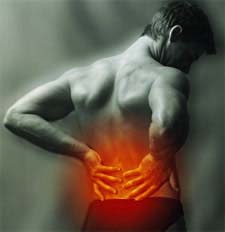A philosophy for treating chronic pain
 The Journal of the American Medical Association has an article in their Clinical Crossroads series by Dr. James Rathmell that presents a case history of a 50-year-old man with chronic back pain. Dr. Rathmell is Director of the Center for Pain Medicine at the Massachusetts General Hospital in Boston.
The Journal of the American Medical Association has an article in their Clinical Crossroads series by Dr. James Rathmell that presents a case history of a 50-year-old man with chronic back pain. Dr. Rathmell is Director of the Center for Pain Medicine at the Massachusetts General Hospital in Boston.
I’ve focused on his thoughts as they relate to non-pharmacologic treatment options and his philosophy on treating the chronic pain patient.
Physical therapy
- Physical therapy — stretching, strengthening, and aerobic exercise — improves pain and physical function in those with low back pain persisting beyond 6 weeks.
- Brief patient education through one-on-one, group, or video instruction can lead to significantly less disability and worry about re-injury.
- Heat, ultra-sound, and transcutaneous electrical stimulation may give short-term symptomatic relief, but don’t alter the long-term course of chronic low back pain.
Behavioral Therapy
- Cognitive-behavioral therapy reduces short-term pain intensity but not functional status.
- Behavioral outcomes (eg, pain behavior, cognitive errors, tension [perceived or observed], anxiety, depression) improve.
Multidisciplinary pain treatment programs
- Multidisciplinary rehabilitation that addresses biological, psychological, and social issues reduces pain and improves function over the long term (as long as 60 months after program completion).
Acupuncture.
- There is inconclusive research.
Spinal manipulation
- For chronic pain relief, the study results are conflicting
The bottom line?
Dr. Rathmell believes now that you’ve got the patient’s attention; use the opportunity for a general tune-up.
For the patient in this case history he recommends counseling to improve overall health. “The pain may not improve, but it’s unlikely to get worse, and he may find himself more involved in life.” Exercise won’t reduce chronic low back pain, but might improve function, etc, etc.
And if cholesterol is high, an exercise program and dietary changes, in addition to medication, might be useful.
I think this this last point expresses a minority view. Based on my admittedly limited experience working with pain specialists, they tend to be hesitant to expand their involvement beyond the treatment of pain. Family physicians making the referrals are not accustomed to relinquishing total care of their patients to a consultant.
5/11/08 21:46 JR